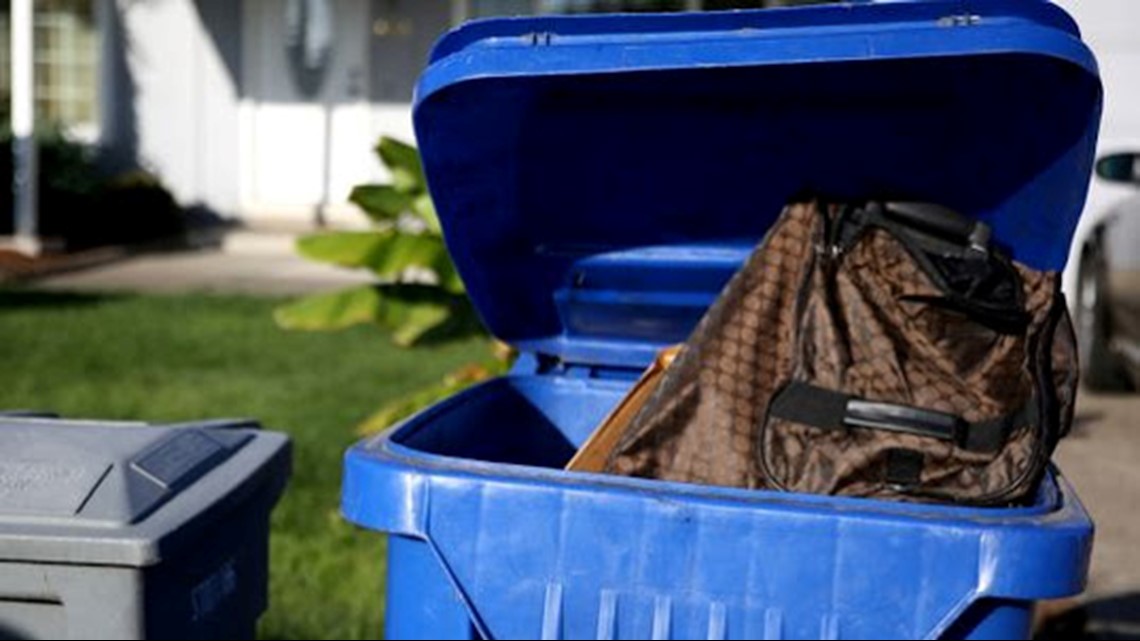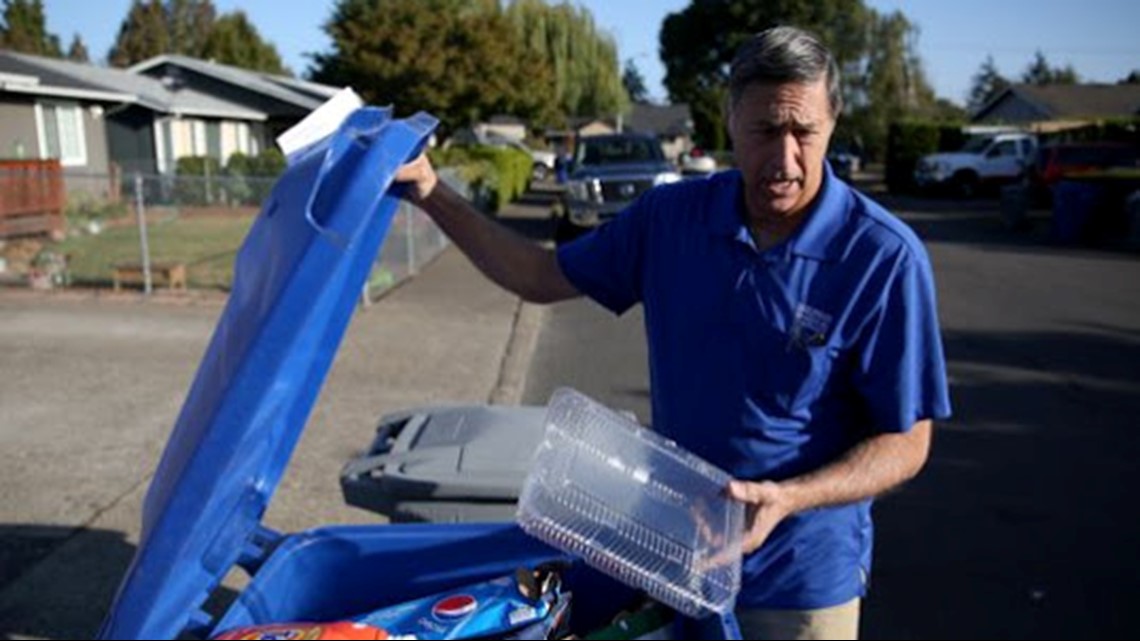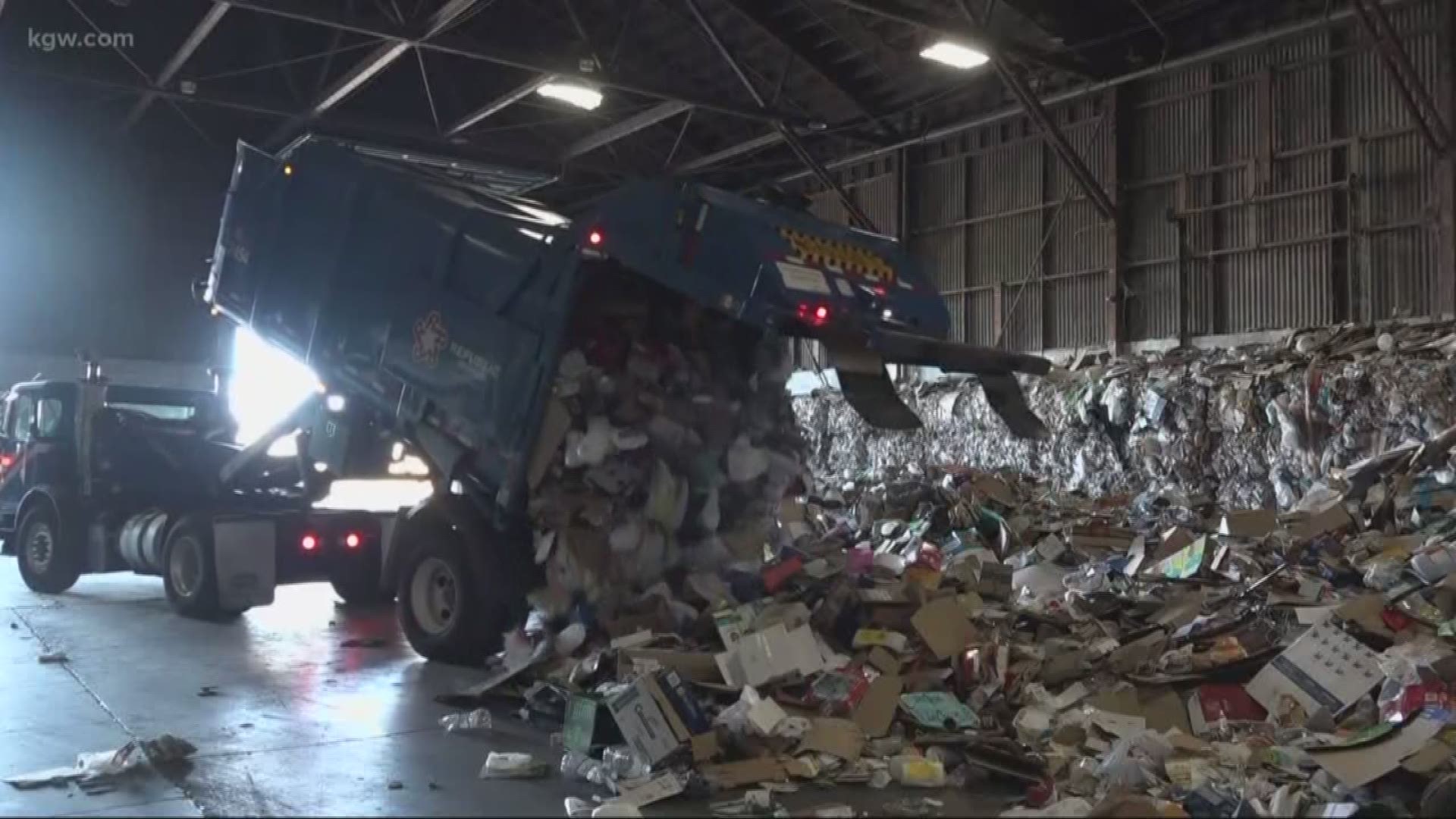Marion County garbage haulers have begun a widespread program of fining residents for improper recycling.
That’s led to hundreds of complaints each week, said Art Kuenzi, owner of Suburban Garbage company, one of seven haulers in the county. Suburban covers part of Northeast Salem and Marion County.
But it’s still just the tip of the iceberg.
“We’re currently only fining for things that never should have been in the cart — plastic bags, swimming pools, umbrellas,” Kuenzi said.
Soon the fines — as much as $15.45 per pickup — will extend to newly banned items, such as milk cartons, clamshell containers and egg cartons.
In March 2018, Marion County drastically scaled back its curbside recycling program, in response to China’s refusal to take most recyclable materials from the West. The new rules also apply to Salem residents in Polk County.


China was the world’s largest importer of recycled paper and plastic, and previously took most of Oregon’s recycling.
Since then, the county and garbage haulers have sent residents flyers about the new rules, and some customers have complied.
But others still are throwing garbage in their carts, which can contaminate a whole load, making it impossible to recycle and costing haulers money.
Kevin Hines is the general manager of the Mid-Valley Garbage and Recycling Association.
On Monday, he walked a Northeast Salem street checking out recycling containers.
Even though many of the residents had multiple previous warnings, their bins were filled with plastic bags, used napkins, shredded paper and, in one case, a large suitcase.
Only two carts on the street of a dozen or so homes met the new recycling guidelines.
Many violators claim someone else put the banned items in their cart, Kuenzi said.
While that’s possible, he said, “Denial is a human trait. There can’t be that many people going around putting stuff in other people’s roll carts.”
(Story continues below)
VIDEO: Easy steps to make sure you're recycling properly
Others say they are still confused about what can go in the bin, and what can’t.
In response, most of the haulers have posted detailed information on their websites, Hines said. The association also has hired a recycling coordinator to speak at neighborhood groups and clubs, and go out to talk with residents in their homes.
Drivers carry lists of previous violators and will get out of their trucks to give bins’ contents closer scrutiny. They also can watch on an in-cab monitor as a video camera records the contents being dumped in the truck.
That’s led some residents to complain that their privacy is being violated.


“We’re telling people we’re responsible for monitoring what we take to the processor,” Kuenzi said.
At Suburban Garbage, about 300 customers have traded in smaller garbage cans for larger ones since recycling was restricted, Kuenzi said. Several also have canceled their recycling, even though there is no fee for picking up residential recycling.
Hines said he doesn't know how many fines are being issued across the county.
But on one of Suburban's recent routes of 600 residents, 30 were fined, or about 5 percent, Kuenzi said.
That’s no windfall for the haulers, Hines said.
Routes have been slowed as drivers more carefully monitor carts and issue warnings and fines, he said. And office staff are overwhelmed responding to complaints and helping educate customers.
Contact the reporter at tloew@statesmanjournal.com, 503-399-6779 or follow at Twitter.com/Tracy_Loew

